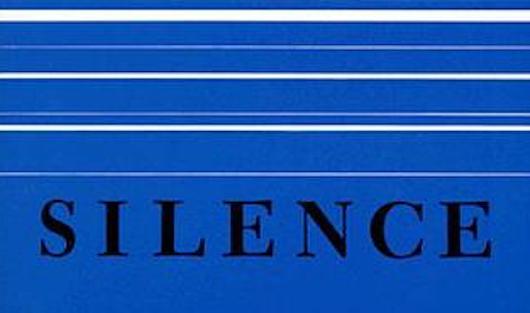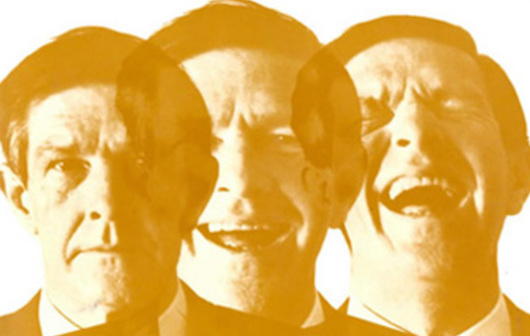
Eating His Words
by MARK ARTURO
I have no piano now. But that doesn’t bother me much. What I want is time.
John Cage thought he was not a writer. This is a scary thought, because I sometimes wonder what kind of writer he could have been if he gave up music and focused on writing full-time. There is a whole class of people who spent their entire lives pursuing one thing when they should have focused on another talent they had. For example:
Mark Wahlberg (waste management)
Jesus (community manager)
Damian Lillard (rap music)
Thom Yorke (pro-Israel advocacy)
Maybe my list makes this sound like a distinctly male problem, but I guess this would also apply to Joan Didion, who would have been a hell of a full-time model.

Back to John Cage. Mr. Cage's letters are completely unself-conscious, which is the mark of every great correspondent. He never bothered censoring himself, since there was nothing terribly bad in his heart. He would go off on people when necessary though. Since he knew a lot about music, and most people writing about did not, he felt it was his duty to educate them.
I appreciate your interest in my work and the trouble you have taken to write the enclosed article. For many reasons, however, I am certain the publishing of this article would not serve either your or my best interests. People are accustomed to saying that anything printed about anything is “good publicity”; such a point of view doesn’t interest me. I am anxious that the article you publish be accurate as to facts and present some true and sensible critical evaluation of the work in percussion and its objectives. I have not really delayed answering your note; I have instead written several letters to you, each of which attempted to point out the errors in your article. I have decided, instead, that it would be better for you to write a new article entirely; and that I could best help you by giving a brief statement about facts and objectives.
I think he was a lot more generous in person. He married a woman, then spent the rest of his life with Merce Cunningham after she divorced him because of all the gay sex. His love letters condense ardor into a fine, tempered feeling, that pulsing with an orgasmic joy of infatuation. He makes love into something so tangible it could be held on the tip of my tongue.
My own feelings towards you were always those of wishing to flow in where it looked like water was absent (mixed with an inherited missionary attitude, itself not practicing what it preached). At any rate I feel very free that you are loving.

I don’t know when it was that I found out how to let this month go by without continual sentimental pain. It’s very simple now, because I’m looking forward to seeing you again rather than backward to having seen you recently.
For Merce he saved his most exquisite remainders.
My whole desire is to run up and down the sea coast looking for you.
Send me some little twig or a hair from near enigma or a piece of grass you touched and sunbathed with, mon prince.

Cage usually condensed his formal writing into the form of anecdotes. It was an aspect of his overall respect for how form shaped his thoughts and ideas. In his private writing, he drops this entire pretense, and it is disappointing to know it is a pretense. As a vehicle for theoretical thoughts about subjects like politics and man's place in the world, the terse aphorism remains very effective. Cage usually pared these observations with choreographed dance by Merce. He was a stickler for detail on any project he pursued, even if the eventual outcome of the project was something as hilariously conceptual as 4'33".
Silence is generally conceived as Cage's first and best book, even though all his other collections of essays revolve around roughly the same topics. His view of the world has held up very well today, because while it does put faith in a variety of odd places, like Schoenberg, Zen Buddhism, and the I Ching, it never settles on any one of them more definitely than the other.

It is important to bring the concept of random chance into my life, and I am usually bad at allowing such things to happen. Arnold Schoenberg had a fear of the number thirteen and then he died on Friday the 13th. I think my main fear now is putting everything I have into something, and it not working out. If you only let a part of yourself, into the venture, maybe you will be like John Cage was with writing. You will have published books, but you will not have said anywhere near enough.
Mark Arturo is the senior contributor to This Recording. He is a writer living in Manhattan.
